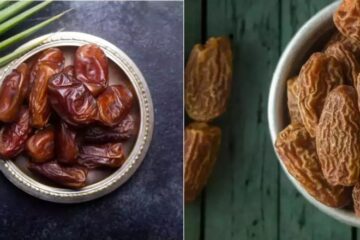Agave. Honey. Maple syrup. All are touted as “better” choices to white pure sweetener, yet none of them are in reality bravo.
Almost certainly sugar has the most exceedingly awful notoriety in the wellbeing and nourishment space, possibly after GMOs. The US Office of Disease Prevention and the World Health Organization state you ought to get close to 10% of your every day calories from included sugar every day – and shockingly better is restricting added sugar to 25 grams (or six teaspoons) altogether. Be that as it may, is it truly reasonable for mark all sugar as the equivalent? Furthermore, what considers included sugar?
A few people will disclose to you sugar will be sugar regardless – while others contend a few types of sugar are better, and might I venture to state, more advantageous than others. In any case, when you take a gander at the examination, there is no proof to plainly express that diets including normally happening sugar are hurtful for your wellbeing.
Underneath, Jayne Williams, an affirmed nourishing advisor and clinical sustenance graduate understudy says something to reveal some insight into the various kinds of sugar and how they influence your wellbeing.
The various types of sugars, clarified
Included sugar is any sort of sugar that you (or a producer) adds to food – regardless of whether that is coconut sugar, unadulterated sweetener, maple syrup, nectar or agave nectar. Be that as it may, this is the point at which the genuine hazy area of the sugar banter shows up, on the grounds that every one of these sugars are distinctive regarding how they’re made or found.
With regards to sugar in food there are a couple of significant variables to consider: If there is included sugar and the sugar originates from a characteristic source, or is found in an entire food. For instance, organic product is an entire, common food and contains sugar in its characteristic structure. It likewise contains an assortment of different nutrients, minerals and supplements.
The World Health Organization notes in their rules that when they allude to sugar admission recommendations, as far as possible doesn’t allude to sugar that is found normally in food like natural product or milk. So the primary thing to recognize is included sugar versus the normally happening type.
“I like to categorize sugar in three categories: Natural, modified natural sugar and fake sugar. Then we can start to differentiate between what can have added benefits and what can just downright cause issues in our body,” Williams says.
Natural sugars
Nourishments that normally contain sugar aren’t equivalent to prepared nourishments with included sugars. Nourishments that contain regular sugar likely have less sugar than a prepared tidbit, and included advantages from nutrients, minerals or fiber, for instance. Included sugars, for example, high fructose corn syrup are frequently progressively prepared types of sugar also.
That being stated, all sugar influences your body by raising your glucose and insulin hormones when you expend it. Notwithstanding, almost certainly, the nourishments you eat that normally contain sugar have far not exactly handled food sources and furthermore contain fiber, nutrients and minerals.
“Natural sugar, like the sugar found in whole food like fruits, is definitely part of a healthy diet for most people. While fruits do contain low levels of fructose, which is a sugar, the overall nutritional value of a piece of whole fruit with all the vitamins, fiber and nutrients is well worth including in a healthy diet,” Williams says. Normal happening fructose in natural products is bound to fiber, which eases back down how quick your body assimilates that sugar.
Fructose isn’t to be mistaken for high fructose corn syrup. “Fructose is a lot better than glucose so it’s frequently utilized as a sugar in prepared nourishments. This kind of fructose is really made and we know it as high fructose corn syrup. This kind of synthetic made fructose is a long way from it’s very removed relative fructose when it’s exacerbated into a syrup,” Williams says.
Adjusted regular sugars
“Modified natural sugars are those that start from a natural source but need slight ‘modern intervention’ to make it to your table. Coconut sugar, raw honey and organic pure maple syrup all have some additional minerals and vitamins, but are still sugar and can affect your blood sugar levels more than natural-occurring sugars in whole foods,” Williams says.
Prepared or ‘fake’ sugars
Prepared sugars are inadequate in sustenance or medical advantages since they’re handled and deprived of any nutrients and minerals.
“Fake sugars are the types of sugars that have been so modified in labs and contain high levels of fructose making it very difficult for your liver to process,” Williams says. “Table sugar in any form (cane, white) falls into this category, as well as agave nectar. While it is low-glycemic, it has high amounts of fructose making it extremely difficult for your liver to process, especially if you include it in your daily diet.”
The main concern
Sugar that is found in entire, natural nourishments is probably going to have other gainful supplements that help balance out the negative impacts it can have on your body. In the event that you do include sugar, for example, nectar, to your food, it’s ideal to hold it under 6 teaspoons for each day altogether.
Be cautious with apparently “sound” bundled or arranged nourishments, tidbits and beverages like smoothies. These can likewise have included sugar. What’s more, for ideal wellbeing, avoid fake sugars and other profoundly prepared types of sugar like high fructose corn syrup


